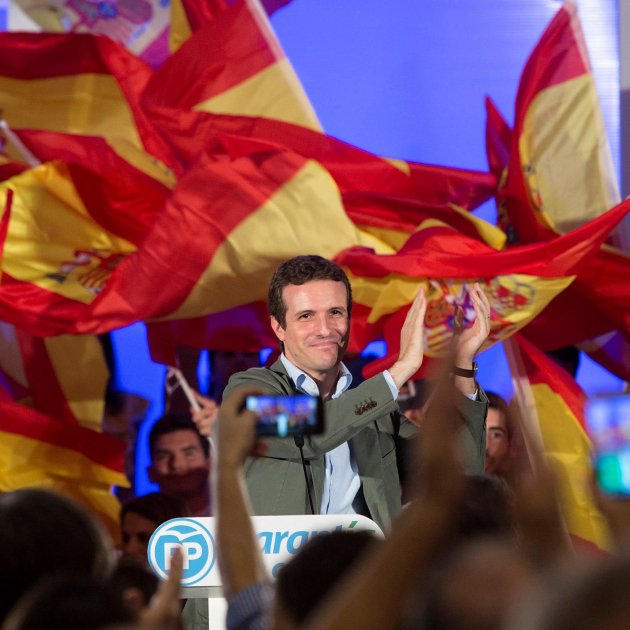The president of Spain's Popular Party, Pablo Casado, has stated this Sunday at a political event in Andalusia that "in Catalonia people are insulted and threatened because of the language they speak". The PP leader's creative approach to facts, illustrated in the nonexistent linguistic conflict he described in the streets of Catalonia, was shared with the world in a tweet:
Translation:
Pablo Casado: "In Catalonia, you can't live your life on the streets without the risk of being insulted or threatened for the language you speak. In Catalonia, it can be said loud and clear that we have to apply article 155 so that the unity of Spain is respected." - Popular Party
One hour after sending the message, the PP erased the tweet containing Casado's statement on the insults and threats in Catalonia based on language. Although erased, Casado's declarations had not only been shared in the text, but were also featured in a video in the tweet, filmed at his meeting on Sunday.
The PP leader also made other statements about Catalonia, comparing it with a "narco state" and a "dictatorship" due to the "privileges" that, in his opinion, the imprisoned independence movement leaders receive at Lledoners prison. "How is it possible that at Lledoners there is a regime for visits, time in the exercise yard and phone calls (for the pro-independence leaders) different from any other prisoner held preventatively, just because they are part of the government that manages the prison?" he asked, adding: "This only happens in narco-states and dictatorships".
For all these reasons, Casado called for a new implementation of article 155 to impose direct rule from Madrid over Catalonia, to be applied "for as long as needed" and to take control over education, police, public media and the penitentiary institutions. And even though Casado assured that "people don't kill in Catalonia", he branded the Catalan independence movement as "a new kale borroka" - in reference to the street violence that affected the Basque Country during the ETA terrorism era. For this reason he then demanded the application in Catalonia of a law previously applied in the Basque Country - the Law of Parties - enabling the prohibition of political parties which do not condemn violence. The PP leader's claims of violence on the streets of Catalonia thus led him to propose a political clampdown of the type once employed by the Spanish state against Basque political parties associated with ETA.
